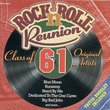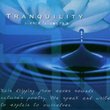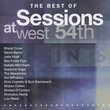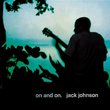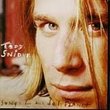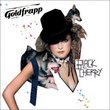| All Artists: Meshuggah Title: Catch Thirty Three Members Wishing: 2 Total Copies: 0 Label: Nuclear Blast Americ Release Date: 5/30/2005 Genres: Rock, Metal Styles: Progressive, Progressive Metal, Alternative Metal, Death Metal Number of Discs: 1 SwapaCD Credits: 1 UPCs: 727361131128, 5051083016384, 727361131166, 829410359153 |
Search - Meshuggah :: Catch Thirty Three
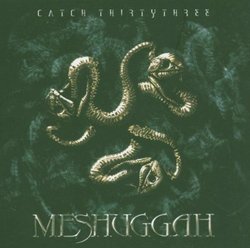 | Meshuggah Catch Thirty Three Genres: Rock, Metal
Sweden's metal mathematicians return with their highly anticipated new studio effort. The band refuses to rest on their laurels and pushes the boundaries of any and all genres they've been cast in. Packaged with a special... more » |
Larger Image |
CD DetailsSynopsis
Album Description Sweden's metal mathematicians return with their highly anticipated new studio effort. The band refuses to rest on their laurels and pushes the boundaries of any and all genres they've been cast in. Packaged with a specially embossed O-card with foil. Similarly Requested CDs
|
CD ReviewsThere are great bands, and then there's Meshuggah Wheelchair Assassin | The Great Concavity | 06/03/2005 (5 out of 5 stars) "Since Meshuggah don't often release a new proper album (five in about a decade and a half of existence), the arrival of a new full-length tends to become something of an event, with the band's rabid fan base dissecting its sound like film geeks picking apart a new Tarantino movie. You can already see the instant analysis on this site, and judging by the early returns Catch Thirty-Three has done a mighty nice job of polarizing Meshuggah's listeners. Of course, given Meshuggah's penchant for ignoring convention and tossing constant curveballs at their audience, perhaps that's exactly what they wanted. Catch Thirty-Three has already drawn some criticism from fans concerned about its departures from Meshuggah's norm, but these people may be missing the point. For one thing, Meshuggah has always been about experimentation, making sure each release sounds different from the one before it, and that pattern continues here. More to the point, while this album is more repetitive than the others, and Fredrik Thordendal's hyper-technical solos have been all but expunged, this album is clearly *supposed* to be a repetitive and streamlined effort by Meshuggah standards. The repetition, the extended atmospheric breaks, and the (slight) reduction of showy technicality enable the band to put more emphasis on its unrelentingly bleak sound and vision, and I for one am all for it. Of course, it's safe to say that I'm somewhat biased when reviewing a Meshuggah album, given the fact that I worship them with a fervor typically reserved for one's deity of choice, but even the band's more casual listeners should find something to like here. Like all Meshuggah releases, this one is distinguished above all by its utter distinctiveness; at no point could a Meshuggah album be mistaken for the work of anyone other than Meshuggah. For while many lesser metal bands make speed, image, or "brutality" the end-all and be-all of their sound, Meshuggah's sound is devoted above all else to complexity, musicianship, and atmosphere. Like None, Destroy Erase Improve, Chaosphere, Nothing, and I before it, Catch Thirty-Three is a sleek, futuristic killing machine of an album, and this one may be the most sleek and futuristic of them all. The embellishments to which metal bands often turn in order to sound "distinctive" (keyboards, acoustic guitars, clean vocals) are conspicuously absent here, as Meshuggah devote themselves to the primitive essentials of voices, guitar, bass, and drum machine. Of course, it's what Meshuggah do with these elements that makes this album such a unique and compelling listen: pulverizing eight-string guitar riffs; noisy Godflesh-style feedback; intricate fusionesque polyrhythms; and of course the dual assault of Jen's Kidman's commanding growl and Tomas Haake's foreboding spoken-word vocals. It all adds up to a twisted, dystopian sound that conveys despair and disaffection better than every whiny nu-metal band on Earth put together. Unlike Meshuggah's previous three albums, on which each song was a distinctive, fully-realized classic in its own right, Catch Thirty-Three is essentially one extended mood piece broken up into 13 parts. As such, it makes sense to listen to it not as a collection of songs, but as a single epic devoted to a unifying theme and atmosphere (the band makes this trick easy to accomplish by not leaving any space between tracks). The first three tracks on the album, Autonomy Lost, Disenchantment, and Imprint of the Un-Saved, provide a pretty clear example of its mission right away, as they coalesce into a swirling vortex of metallic fury built around one stuttering, drawn-out, entrancingly repetitive guitar riff that had me banging my head with reckless abandon at a stoplight in full view of about ten other drivers on first listen. This opening movement reaches a level of intensity that rivals the finest moments of Chaosphere, and the insanity doesn't stop until the start of The Paradoxical Spiral, which opens with some atmospheric guitar notes before launching into another gut-busting riff. The album's longest section, In Death - Is Death, is also perhaps its most exemplary moment, opening with Jens's trademark robotic scream and a guitar sound that's about as pleasant as having a steak knife shoved in your ear before steadily segueing into a prolonged ambient passage that constitutes one of the few extended periods in Meshuggah's canon that could properly be called minimal. Most metal bands wouldn't dare leave so much space in one of their albums, but then Meshuggah isn't most metal bands. Before taking my leave, I should also stress that the instant gratification factor on this album may not be as high as usual for Meshuggah. Their work has always reveled in complexity and unpredictability, but given Catch Thirty-Three's retreat from conventional song composition and its excessive reliance on tone and repitition, this one might take even more time than usual to fully appreciate. It's the kind of album that sort of gets under your skin more and more as you listen to it, communicating increasing amounts of its feel on successive listens. You still may not like it (as some Meshuggah fans obviously don't), but Catch Thirty-Three more than deserves some extra time. You'd probably just waste it anyway." How do they do it? ifutureman | NJ | 09/08/2005 (5 out of 5 stars) "It's so inspiring when a band manages, fifteen + years into their career, to produce work as original and powerful as this. After testing the "epic" waters with last years "I" ep - a 21 minute slab of perfection - Meshuggah has expanded its vision to an entire album-length composition, "Catch 33." True, there are 13 song titles corresponding to 13 tracks on the CD, but this track indexing has nothing to do with individual songs; tracks 1-3 all blend seamlessly together and function as a single chunk of music. Likewise, tracks 4-6 also form one "song," or at least one sub-section of the album as a whole. The album is clearly meant to function as one complete work; the opening theme gets reworked a few times over the course of the album, as do certain other musical ideas. Personally, I almost always just listen to the whole thing, although occasionally I will skip straight to track 8, "In Death," which features my favorite riff on the album. Even for Meshuggah, this one stretches the boundaries of rhythm and melody - this band can take two notes and make an incredibly complicated groove simply by playing with the time signature. But there are also some soft passages with clean guitars, which display a strong sense of harmony. This album has it all. Of course, the recording quality is nothing short of stunning." Best Meshuggah Album yet General Zombie | the West | 06/06/2005 (5 out of 5 stars) "Meshuggah has really started to grow on me in the last half a year or so, particularly since their release of the brilliant 'I' ep, which made me more carefully reevaluate their earlier work. For the longest time, I thouht of Meshuggah as being kinda vaguely interesting, but not really all that compelling. And, I still think their earlier stuff tends to be a bit too cold and clinical, and much of it seems pieced together from the individual segments with no real apparent reason or focus. Many would say, with reason, that both of those aspects are integral to the Meshuggah sound, but that doesn't make me anymore fond of them. I guess it seemed to me that the foundation of their sound was contradictory, to be both chaotic and mechanistic, with very heavy, wild riffs that you can't properly rock out to due to their crazy rhythms. (A problem compounded by their utter lack of melody, and virtual lack of any atmosphere) Still, after being deeply impressed by 'I', I've become increasingly fascinated with their intricate rhythm guitarwork, and Thorendel's mad leads, so that the fundamentally unsatisfactory nature of their sound matters less and less. Still, though I very much enjoy 'DEI', 'Chaosphere', and 'Nothing' now, I think 'I' and 'Catch Thirty-Three' mark the pinnacle of Meshuggah's career, and hope they continue in this new vein. Oddly enough, in their movement towards epic songwriting, Meshuggah have actually brought focus and direction to their sound along with ample atmosphere, so now they're using their unique musical idiom to convey something concrete, rather than just to conduct some sort of odd musical experiment. (Whether or not this is literally true, I can't say, for sure, but that's the way it *feels* anyway, which is what really makes the difference.) It's true, however, that their new emphasis on mood has dropped their insanity level a bit. But, with 'Catch Thirty-Three', Meshuggah proves that you can have a lotta mood and a lotta madness at the same time.
Meshuggah has been accused of both veering to far off course with this album, and of simply repeating themselves. Though the notion of whether or not they've 'gone to far' is debatable, the accusation that they're just repeating themselves is ridiculous. Frankly, 'Catch Thirty-Three' isn't even all that similar to the earlier 'I', as although it is very long and has plenty of atmospherics, the riffwork is slower, denser and more jagged. On Meshuggah's earlier work, their riffs tended to be flatly amelodic, but on `Catch Thirty-Three' they take this a step further, with harsh, unsettling and actively anti-melodic riffwork. (Not to say they didn't ever play like this before. They certainly did, but the harsher, nastier riff style is now more prominent.) The riffs just have an emotional impact that was often lacking before, as they now actively attack the listener. Yes, this album is relatively slow, but I think this works for Meshuggah's sound, as the slower tempos allow the odd, shifting rhythms to breath, letting the irregularities really disorient you, rather than just zooming by. Meshuggah uses their comical looking 8-string guitars again, but with a washier, somewhat more distant and subterranean kinda guitar tone, rather than the punchier, more conventionally metallic sound of 'Nothing'. Though I typically like a crunchier tone, I think this works here. The smoother sound is darker, and more insidious and suffocating, which helps the mood of the album. (The tones aren't terribly different, mind you, but it's noticeable and makes a difference.) They mix things up pretty well, with the first movement containing a groovy, more memorable riff(cycle), while the second movement has got a nastier, more jarring one, while the final third of the album tends to be more driving, and occasionally faster. (And there are a number of atmospheric breaks throughout the album) Sadly, the jazz-fusion leads are gone, but, to be honest, I can't really think of anywhere they'd be appropriate on this album. The atmospheric material is spacy, jazzy stuff, minimalistic at times, while sometimes dense and weaving. Some seem indifferent to this material, but I think it helps Meshuggah's sound massively, and also provides a strong counterpoint to all the intensity. The drums are programmed rather than live, and while I am technically opposed to this, it is effectively the same as if Haake did it himself. Naturally, the drumwork reflects the utterly unique, severely poly rhythmic style that defined Meshuggah's drumming on the prior 3 albums. This isn't as new and exciting as it once was, but it's still pretty damn unique, and impressive. 47 minutes is pretty damn long for a single composition, but they keep it from getting dull, while simultaneously NOT making it so dense that it's impossible to digest. Yeah, it is more repetitious than their earlier stuff, but the repetition is necessary to generate the violent, nightmarish atmosphere that this album generates. (Which is a more than adequate tradeoff, I think) So I guess that's it. Those looking for just more 'Chaosphere' type madness will be disappointed, but those who wanna hear Meshuggah take their sound in a more menacing, ominous direction will likely be very pleased." |

 Track Listings (13) - Disc #1
Track Listings (13) - Disc #1